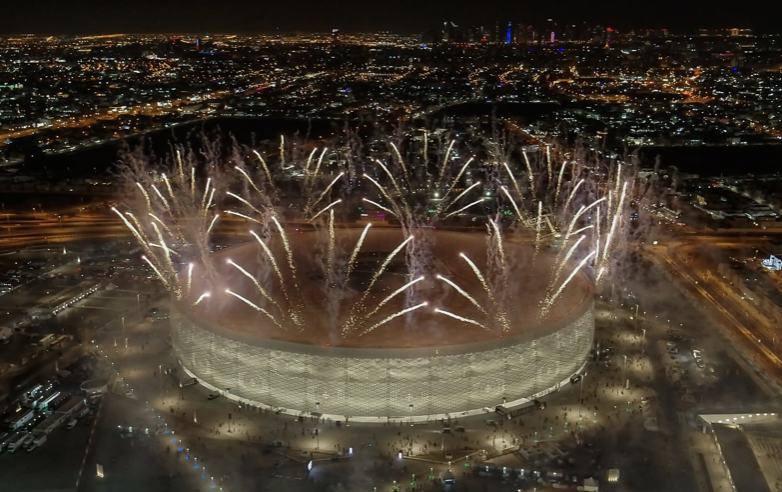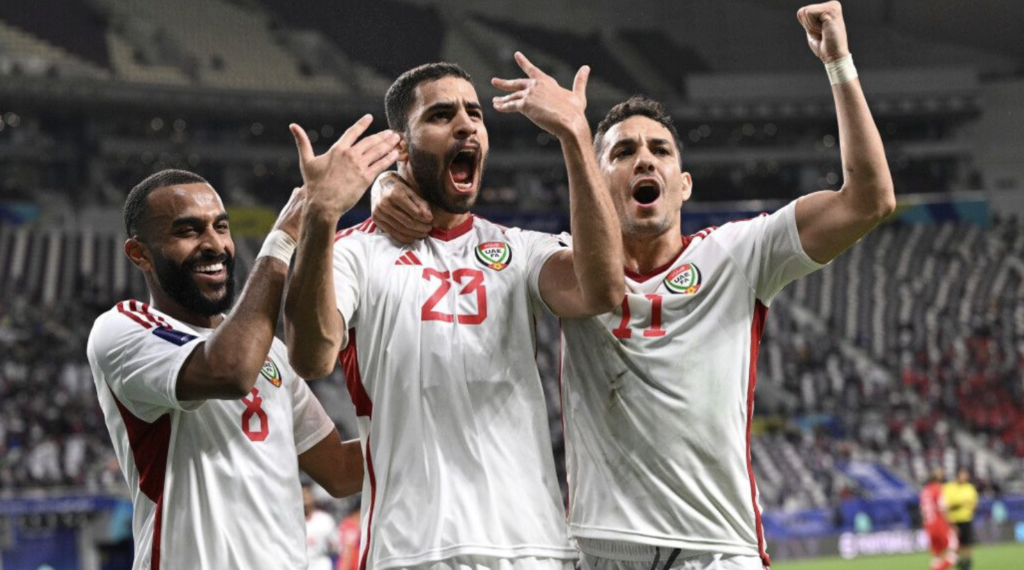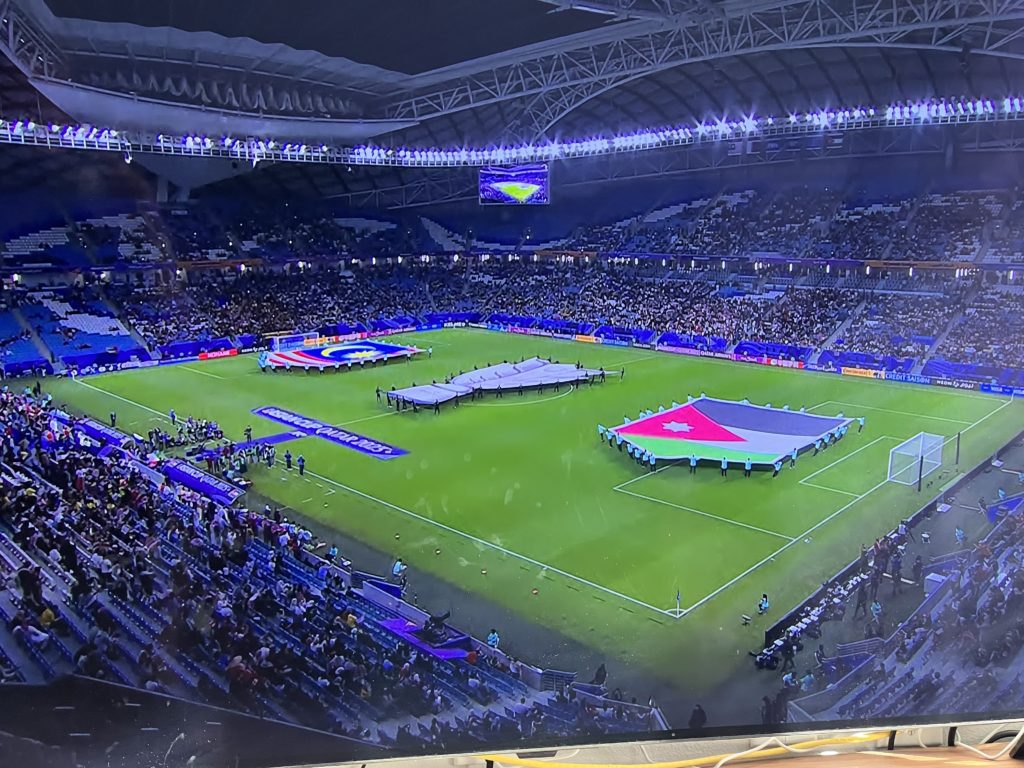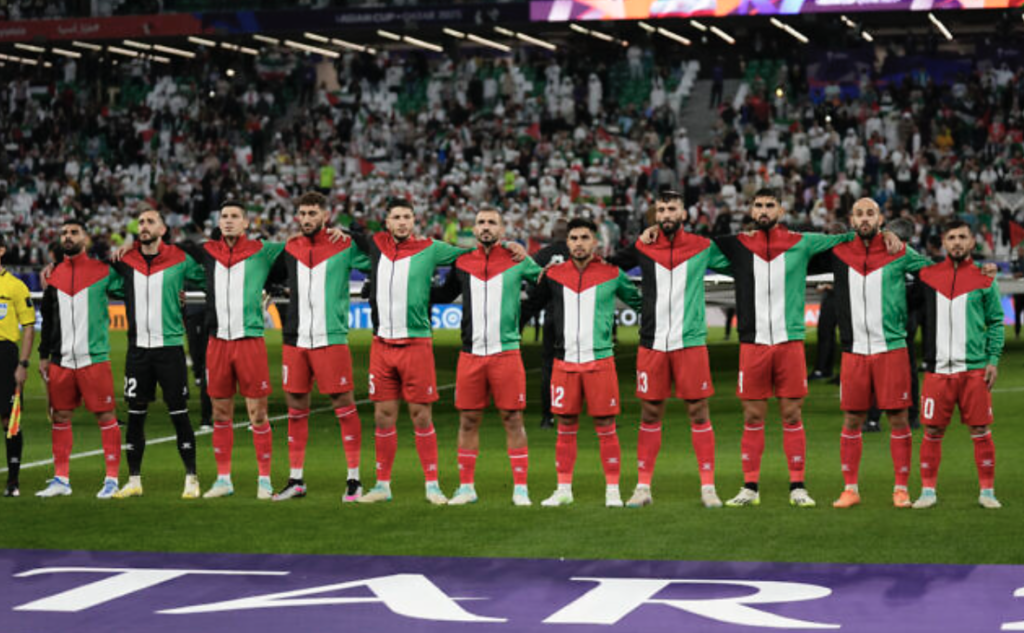By Samindra Kunti in Doha
January 26 – The group stage of the Asian Cup was wrapped up yesterday with Saudi Arabia heading Group F, but the narrative for the first three rounds of matches has been the narrowing gap between the traditional powerhouses and the rest.
The standout stories so far have been the performances of debutants Tajikistan and the emergence of Palestine from the darkness of war in Gaza.
A year after the World Cup, the focus is back on Qatar, hosting Asia’s showpiece event after China withdrew because of COVID-19, and largely relying on World Cup venues. The first round delivered enough intrigue and drama to keep supporters on their toes.
Qatar ignited the tournament at Lusail Stadium and during a two-week rollercoaster, some of the heavyweights have struggled through ups and downs as smaller nations enjoyed their moment in the sunshine, throwing down credible challenges to the established order.
Gone are the days of 2011, the last Asian Cup in Qatar, when Japan put five past Saudi Arabia and Jordan were just about the only surprise package in the knockout stages. This time, all of Indonesia, Palestine, Syria, and Tajikistan will feature for the first time in the round of 16, suggesting the playing field has become more level, even if the tournament has expanded to 24 teams.
None of the tournament favourites have impressed. As the only two sides, Iran and hosts Qatar maintained a perfect record.
Hitting peak form at the right time, Akram Afif and Almoez Ali propelled the Maroons to three wins from three, offering the defending champions some hope that they can repeat their fairytale of four years ago.
The attacking duo however will have to prove they have the pedigree to take on Asia’s best.
Iran never truly impressed, but, shifting gear, demonstrated their depth against the United Arab Emirates in the final group game as manager Amir Ghalenoei showed his hand for the first time by fielding both Mehdi Taremi and the industrious Sardar Azmoun.
The pair can produce fireworks and any side will struggle to deal with Iran’s top-heavy team. If Iran remain level-headed off the pitch – politics are never far away – they might go far in a bid to win their first continental crown since 1976.
Japan and South Korea had mixed group stages. The Japanese suffered a shock defeat at the hands of Iraq and showed too few glimpses of the free-flowing passing game that makes the Samurai Blue such a potent force.
Korea laboured to draws with both Jordan and Malaysia with talisman Son Heung-Min failing to ignite and question marks remain over Jurgen Klinsmann’s acumen as a manager.
Often nicknamed the Germans of Asia, Australia navigated the group stages economically but weren’t very good on the ball, something that Uzbekistan exposed in a 1-1 draw. Going into the knockout stage, it’s a flavour the Australians, with a different outlook from the team that thrilled at the World Cup, won’t like.
Iraq have emerged as a dark horse after setting the tournament alight with a 2-1 win over Japan. The team plays enterprising football under Spanish coach Jesus Casas, who led the Iraqis to their first Gulf Cup in 34 years, and on the back of that success, they are dreaming of a repeat of 2007 and with the United Arab Emirates or Tajikistan potentially awaiting in the quarter-finals everything is possible.
On their maiden Asian Cup voyage, the Tajiks impressed with a disciplined approach under manager Petar Segrt and clinched their ticket for a round-of-sixteen clash with the United Arab Emirates. Can they go one further against a team renowned for imploding at key moments?
Tajikistan’s sporting story is almost unmatched were it not for the brave Palestinians who against the backdrop of war but somewhat buoyed by massive Arab support in the stadiums reached the second round for the first time in their history, drawing with the UAE and cruising past Hong Kong.
That 4-0 victory prompted emotional scenes among Palestine’s players and staff members and it will be a moment to cherish for a people being battered at home.
On the pitch, the Palestinians could teach China and India a lesson or two as well.
Asia’s two most populous nations departed the tournament in acrimonious fashion. India had five shots on target across 270 minutes of football and it was hard to see how manager Igor Stimac, who succeeded Stephan Constantine after the 2019 Asian Cup, had progressed a side that still relies on veteran striker Sunil Chhetri.
India’s renewed continental failure – their second-worst Asian Cup campaign – is an indictment of football in the country, where stakeholders from the AIFF to the ISL over the years have failed to implement a proper grassroots system to develop the game from the bottom up.
China’s campaign was perhaps even more lamentable in a reflection of how Chinese football has collapsed in recent years after the country had sky-high ambitions to become a power in the game, seeking to establish a youth system and fueling the elite through the Chinese Super League. It was a failure years in the making and there will be no short-term fix.
The Chinese won’t be missed in the last 16 which includes a mouth-watering heavyweight clash between Saudi Arabia and South Korea as the tournament shifts gear in the battle for Asia’s biggest crown.
Contact the writer of this story at moc.l1751418922labto1751418922ofdlr1751418922owedi1751418922sni@i1751418922tnuk.1751418922ardni1751418922mas1751418922




